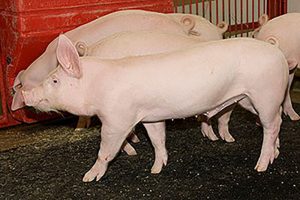Burson, CA — The first case of feral hog virus was detected and confirmed in Calaveras County.
The United States Department of Agriculture (USDA) and Wildlife Services have identified Pseudorabies virus (PRV) antibodies in samples collected from two feral pigs tested in Calaveras County. Pseudorabies is a viral infection that affects domestic and feral swine, cattle, dogs, cats, sheep, and goats. It can be spread through direct animal-to-animal contact, breeding, and herd-to-farm contact. The virus can also be transmitted through contact, bite wounds, or the consumption of raw feral pig meat.
Symptoms in pigs can vary, with piglets showing central nervous system signs, incoordination, sneezing, coughing, and leading to a high number of deaths. Adult pigs may show coughing, fever, pneumonia, nervous system issues, and reproductive problems such as abortions or stillbirths. Although rare, humans can contract PRV, presenting as encephalitis. Cats and dogs may show signs and symptoms such as excessive drooling, severe itching, fever, vomiting, and seizures.
Prevention is crucial for the spread of PRV to other livestock and domestic animals. Physical barriers, separation and quarantine of livestock, and following sanitary procedures can help prevent contact between feral hogs and other animals.
Treatment for PRV is currently unknown, but antibiotic medications and vaccines can control secondary bacterial infections. If you notice serious health issues related to reproduction, the nervous system, respiratory concerns, or sudden deaths among sows, boars, or newborn piglets, contact your veterinarian. Local, state, and federal animal health officials will also become involved in the investigation. For additional information on pseudorabies, click here.

